What's behind the cat cafe craze?
A cat cafe opened up this week in New York. But they have long been popular in Japan and elsewhere.
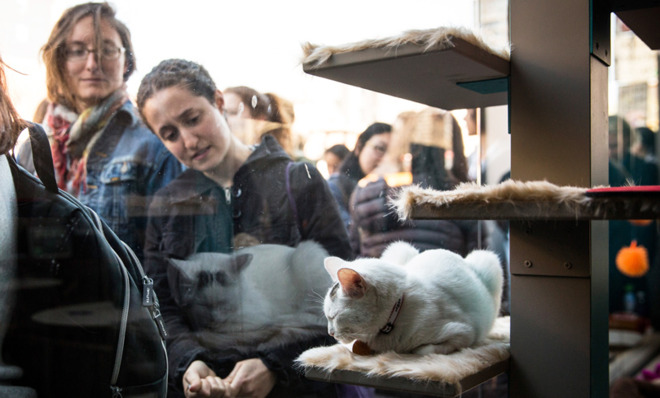
A free daily email with the biggest news stories of the day – and the best features from TheWeek.com
You are now subscribed
Your newsletter sign-up was successful
On a recent trip to Osaka — surrounded by temples thousands of years old, and magnificent mountains full of cherry blossoms and historical sites — I found myself in a cat cafe. For ¥1000 (about $10) I got to spend an hour petting a dozen or so cats while sipping a matcha tea latte at Cafe Ragdoll.
Five other visitors wandered around a space that looked like a living room, throwing around toy mice or dangling string in front of the cats. As I sat there, taking in all the cuteness, I wondered if cat cafes would ever catch on in New York City.
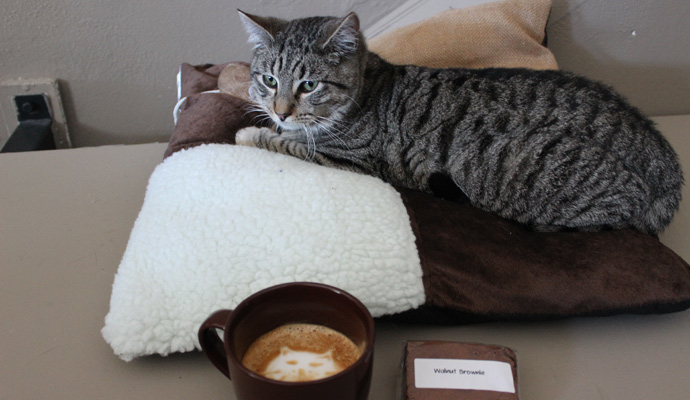
Buddha must have answered my prayers, because a cat cafe opened this week on the Lower East Side of Manhattan. As early as 8 a.m., crowds started to gather outside the pop-up pussycat coffee shop to get a chance to cuddle with 16 felines, part of a four-day event that was arranged by pet food company Purina One. All of the furballs came from North Shore Animal League, the world's largest no-kill animal rescue and adoption organization, and were vetted beforehand to ensure that they were comfortable together and around humans.
The Week
Escape your echo chamber. Get the facts behind the news, plus analysis from multiple perspectives.

Sign up for The Week's Free Newsletters
From our morning news briefing to a weekly Good News Newsletter, get the best of The Week delivered directly to your inbox.
From our morning news briefing to a weekly Good News Newsletter, get the best of The Week delivered directly to your inbox.
Christina Travalja from North Shore Animal League said cat cafes are a great way to raise awareness of how wonderful cats are, and to offer a chance for people to see the animals in their natural, chill state. "In a shelter cats are in cages, but here we're seeing their personalities come out."
And the cats adapted purrfectly (sorry) to the love that came pouring in from the line outside, which, by mid-morning, had reached cronut proportions.
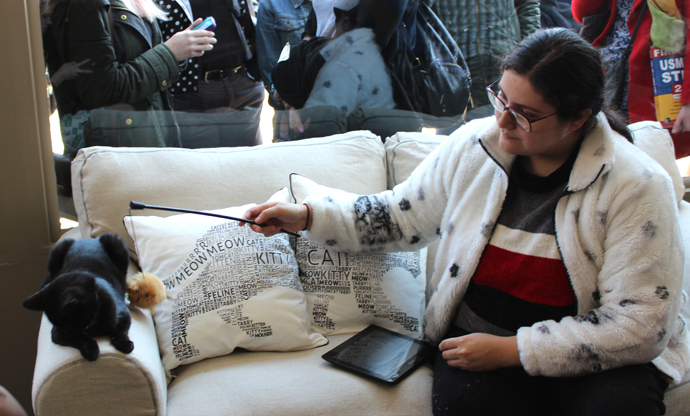
Ashley Matarama traveled all the way from New Jersey to be first in line to play with our animal friends. The 21-year-old said that she loves cats, but can't have any in her apartment. She was excited about the cafe concept, and wants more to open up. "If you open up cat cafes you open up more opportunities for cats," she said.
June Masuda, a Lower East Side resident in her 40s, wanted to come to the event just to be around cats. "It feels good being around animals because it reduces stress," she said. Masuda is allergic to cats, but she said, "The benefits outweigh the risk."
A free daily email with the biggest news stories of the day – and the best features from TheWeek.com
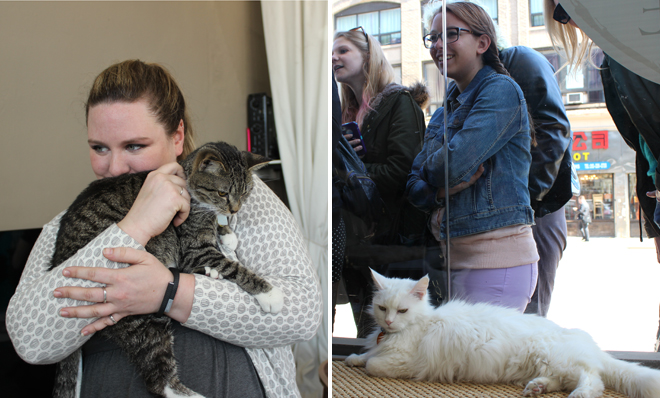
A similar sentiment is prevalent at cat cafes all over the world. And there are lots! The first one opened in Taiwan in 1998, and the concept quickly spread to Japan, which is home to more than 150 cat cafes. The reason it's so huge there is because most landlords do not allow pets. The craze then moved to parts of Europe, including Germany, England, and France. In recent years, North Americans have been itching to open some, too.
KitTea is currently looking for a location in San Francisco, and plans to open a store that serves tea with a side of cat cute by the summer. Another cat cafe, Miaou Boston, is also slated to open. The woman behind the idea said that dealing with Boston's Board of Health was a "preliminary concern," because of regulations against serving food around animals. The pop-up pussycat cafe in New York overcame those hurdles by separating the establishment into two parts: one where patrons can get their food and drink and another where they can sit with the cats.
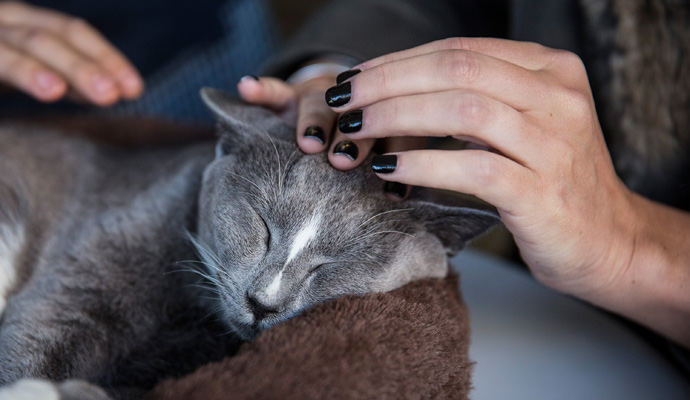
The cafe will be open to the public through Sunday from 10 a.m. to 7 p.m. There will also be discussions throughout the weekend on cat health, as well as information on how to adopt. But be quick about it!
"One cat was already adopted before we opened," Travalja said, referring to a crew member who fell in love with a cat when they were setting up the store.
Amy Kraft is a print and radio reporter based in New York. She reports on science and the environment for publications including Scientific American, Discover, Popular Science, Psychology Today, and Distillations, a podcast out of the Chemical Heritage Foundation. She is currently working on a book of humor essays. You can check out more of her writing on her blog Jaded Bride.
-
 6 exquisite homes with vast acreage
6 exquisite homes with vast acreageFeature Featuring an off-the-grid contemporary home in New Mexico and lakefront farmhouse in Massachusetts
-
 Film reviews: ‘Wuthering Heights,’ ‘Good Luck, Have Fun, Don’t Die,’ and ‘Sirat’
Film reviews: ‘Wuthering Heights,’ ‘Good Luck, Have Fun, Don’t Die,’ and ‘Sirat’Feature An inconvenient love torments a would-be couple, a gonzo time traveler seeks to save humanity from AI, and a father’s desperate search goes deeply sideways
-
 Political cartoons for February 16
Political cartoons for February 16Cartoons Monday’s political cartoons include President's Day, a valentine from the Epstein files, and more